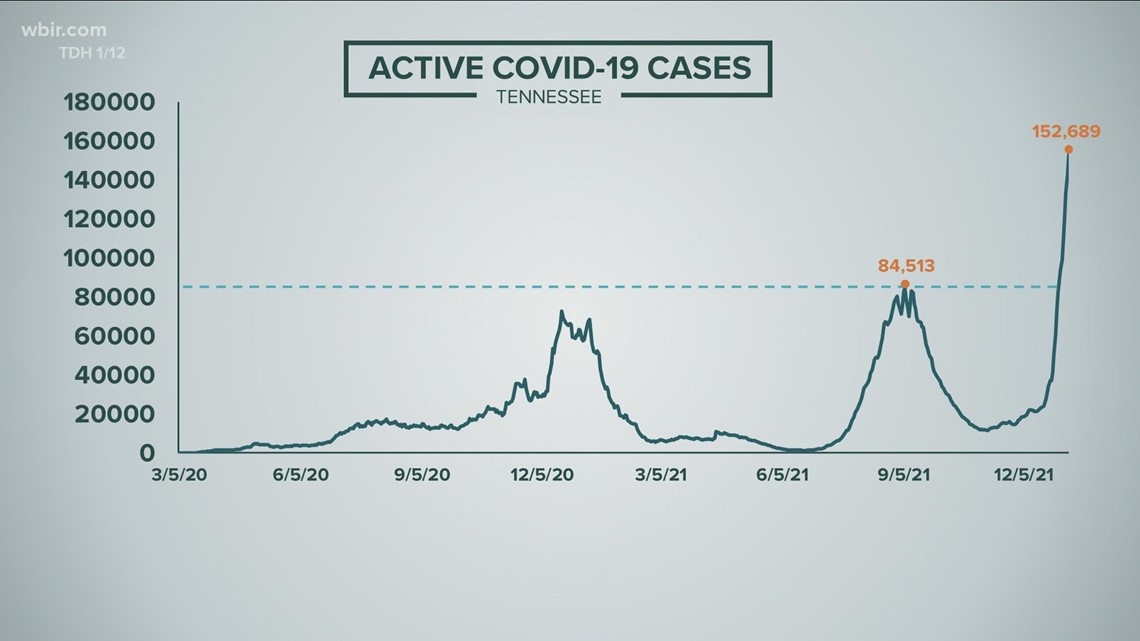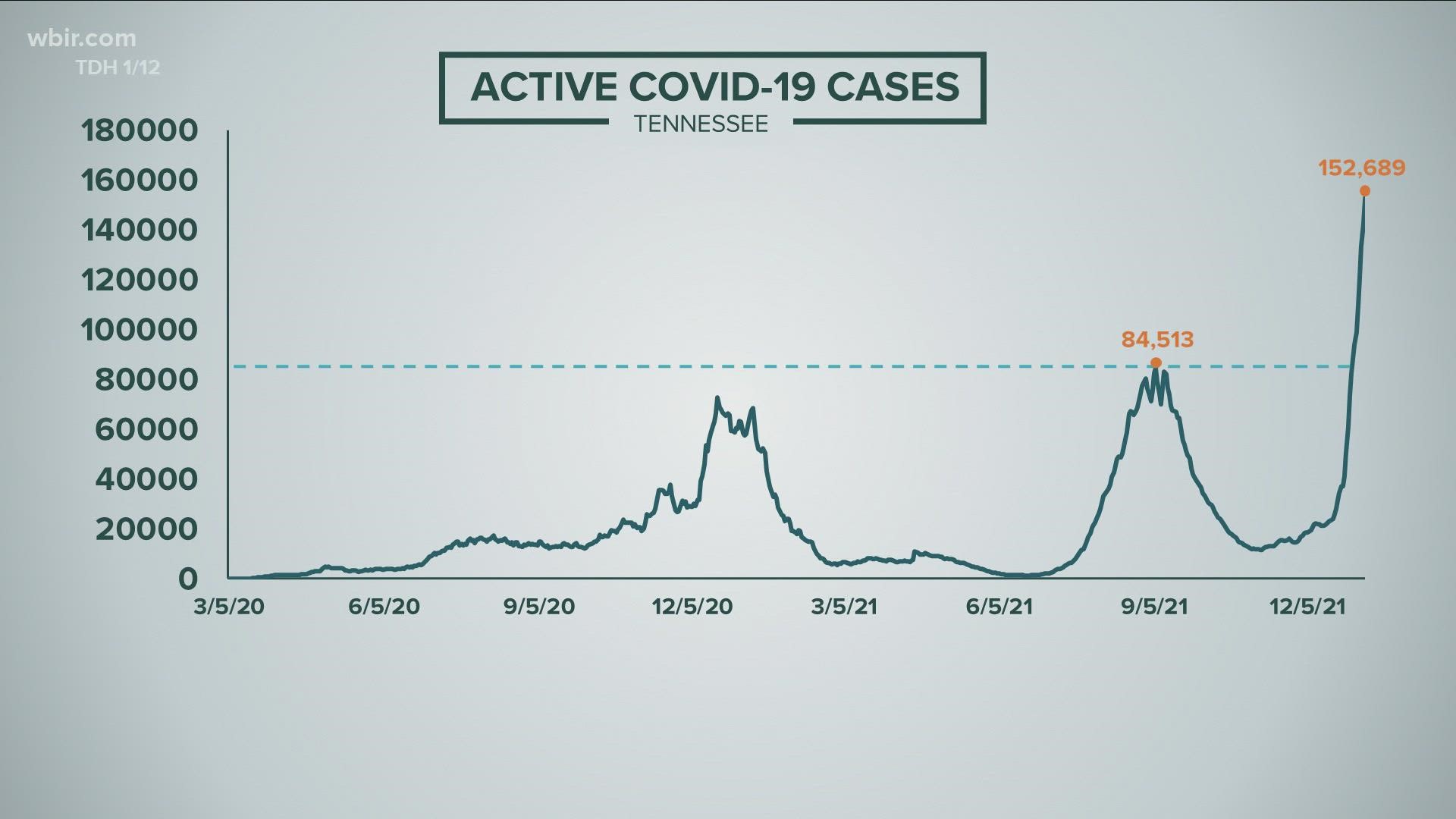KNOX COUNTY, Tenn — On Saturday, COVID-19 cases hit an all-time high in Tennessee. The state health department reported more than 152,000 active cases.
That's nearly twice as many active cases reported during the peak of September's surge, without including the thousands of people taking at-home COVID-19 tests.
It took 4 days for the public to learn just how bad it had gotten because the Tennessee Department of Health has stopped reporting data on a daily basis.
It'll take another week to learn whether the numbers have gotten worse or improved in the days since.
"[Daily] is not a sustainable way to do it in perpetuity," state health commissioner Dr. Lisa Piercey said during a December briefing. "We're going to be transitioning into reporting data [weekly], like we report other conditions."
On Friday, the Knox County Health Department announced it too would scale back to weekly data updates.
"We've been providing that data for two years. The community knows what to do," said Katharine Killen, chief strategy officer and interim co-director of the Knox County Health Department. "How do we take what we do related to COVID and fold that into all of our other activities and responses?"


For them, Killen said it made sense to transition to weekly COVID-19 updates.
"Things are very different now than they were in March of 2020 or in April of 2020," she said. "Regardless, we are dedicated to finding the best ways to communicate that are sustainable for our team, but also provide good information for our community."
At the moment, there are no plans to bring back daily COVID-19 updates or weekly media briefings.
"We are seeing a surge, absolutely, just like the state and the rest of the country," she said. "That's why we need to bring it back to that layered mitigation strategy and continue to do those things."
The new reporting period is the previous Sunday through Saturday, which KCHD said is modeled after the state.
"As always, we encourage people to look at the trends," KCHD said in a statement. "We continue to urge everyone to follow those ever-important mitigation strategies (getting vaccinated, staying home when sick, wearing a mask, physical distancing and washing hands regularly) as cases continue to rise."

